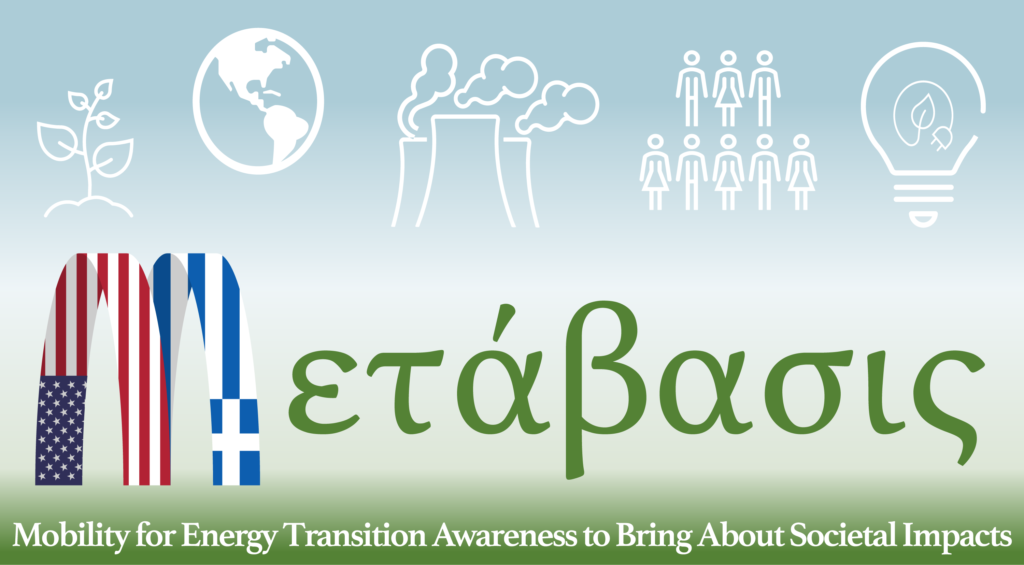
The Texas A&M Energy Institute and the Agricultural University of Athens (AUA) are teaming up with the US Embassy in Athens, the Texas International Education Consortium (TIEC), and the Center for Houston’s Future to understand the economic, social, and environmental impacts of a rapid energy transition on vulnerable communities and marginalized regions in Greece and Texas.
Led by Dr. Konstantinos Pappas, the Assistant Director of the Texas A&M Energy Institute, and called “METAVASIS” (Mobility for Energy Transition Awareness to Bring About Societal Impacts), this program will allow AUA and TAMU students to visit each other’s countries and learn how to promote energy equity and energy justice. Dr. George Papadakis, a Professor of Renewable Energy Technology at the Agricultural University of Athens, will co-lead the project in Greece.

The Energy Transition is most often defined in popular media as a global technological change centered on the need to reduce greenhouse gas emissions. When viewed solely through a technology perspective, envisioning the future energy landscape could leave out considerations around the socio-economic-environmental impacts of energy transition – notably what would or could lead to overall benefits in climate impacts and clean energy delivery for disadvantaged communities. Studies show that the social dimension for change is of equal importance to the environmental needs and technological opportunities. Greece and the State of Texas are solid examples of the transition toward clean energy. However, the repercussions of this rapid change (associated with energy technology and economic transition) have not been sufficiently assessed.
METAVASIS aims to improve graduate students’ understanding of the economic, social, and environmental impacts of a rapid energy transition on vulnerable communities and marginalized regions in Greece and Texas through an exchange program and educational enhancement activities. The outcomes of this are not to encourage slowing down the necessary energy transition, but to create future energy leaders and policymakers who understand what considerations are necessary for a just energy transition.

Through an exchange program and the enhancement of educational ties between Greece and Texas, our goal is to increase the infusion of inclusivity into the scholarly community and the engagement of affected communities about the energy transition, presenting appropriate policy, financing, developmental changes, and support mechanisms to Greek and Texan graduate students for consideration. We expect that, through this project, human-centered solutions will advance as the teams of the two Universities improve their knowledge of energy transition matters and their impact on local populations, helping them more easily understand the bigger picture. Through collaborations with stakeholders from the two countries, beneficial networking opportunities will be created for the participants to initiate continuous collaboration and the sharing of experiences and best practices.

